Hello from Wikitongues
Hello internet. Thanks for having us, we’re happy to be here.
Wikitongues is a global organization based in Brooklyn, N.Y., and we’re building the first complete, living platform for every language in the world. It’s an ambitious goal, but bear with us.
Every Language In The World
The world is a big place. So big, in fact, that it is where all of the roughly seven billion (7,000,000,000) human beings (minus the handful of astronauts working at the International Space Station) call home.
In this beautiful, blue world of ours, the current estimate is that there are somewhere around seven thousand languages spoken and signed. This statement in itself leaves a lot to be unpacked, but we’ll leave this for future posts.
No more than 3% of the world’s languages are nationally official in their native countries
What is not up for debate, however, is the alarming fact that of these seven thousand languages spoken today, half — that’s more than 3,000 !— are expected to disappear in the next eighty years. And while languages, like communities, have a natural ebb and flow, there has never been a moment of such flagrant collapse in our shared cultural fabric.
The forces behind this collapse are layered and staggering. Globalization, urbanization, and climate change are uprooting communities. Mass media continues to reinforce larger languages while drowning out smaller ones. Most importantly, governments and corporations have shown scant interest in supporting linguistic diversity. To mention two statistics, no more than 3% of the world’s languages are nationally official in their native countries, and less than 5% are represented by computer operating systems. The resulting reality is that for most communities, passing language onto future generations has become a great challenge — and in more severe cases, an impossible dream.
Over the past several thousand years, our ancestors nurtured a great collective memory as they drew breath under starry skies. With each passing day, this wealth of life grows smaller and more silent. Wikitongues is fighting against the collapse of communities and language loss by building a space for all people to discover and explore the full wealth of culture our solitary planet possesses.
A Living Archive
Wikitongues started in early 2013, as an experiment in acknowledging the local diversity of New York City. We’ve grown to work with over 140 contributors in 45 countries, from the south pacific to the arctic circle, having collected oral histories in 250 languages and publishing videos in new languages at every opportunity. Collaborating with people around the world empowers us to work with these communities wherever they are.
We’re racing to collect oral histories such as the one above, as well as dictionaries, in all of the seven thousand languages still spoken in the world today — exposing our audience to the sounds, stories and presence of our fellow planet-mates, before it’s too late.
Three ways you can help Wikitongues
- Document language with us. Record yourself, your friends and family, and help us find speakers and signers of every language in the world.
- Donate to Wikitongues. We work with Paypal, direct donations on YouTube (Click “Support” on the side bar), and pledges on Patreon; you can even donate while shopping on Amazon! We’re a non-profit organization, so every dollar counts (and is also tax-deductible in the US).
- Spread the word. Like us on Facebook, follow us on YouTube and Twitter, and join our mailing list for updates. Tell you friends about Wikitongues and help raise awareness about global language loss.
